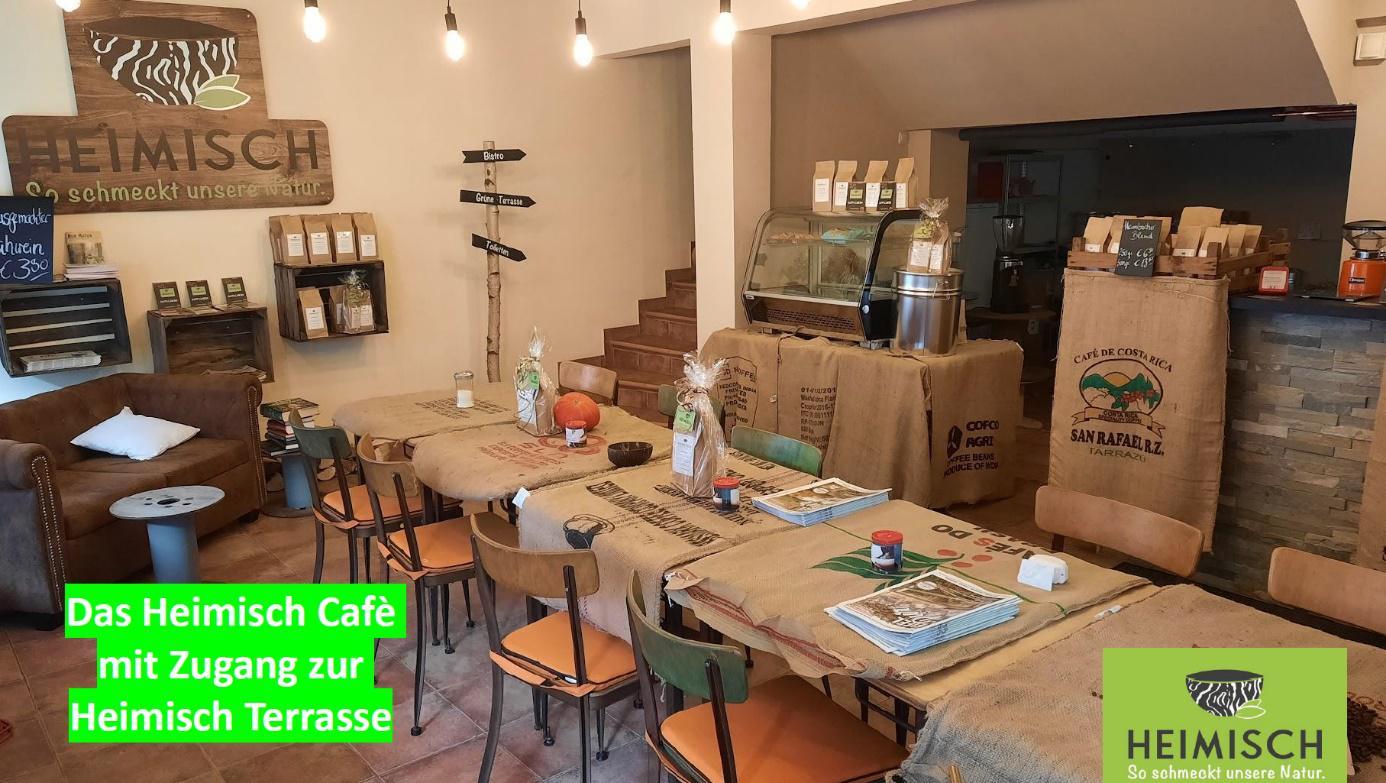
Developing “self-sufficiency in gastronomy” – “Heimisch” Heimbach
Introduction and background
The “Heimisch” is a gastronomy business located in Heimbach, a small tourist town located in Germany’s Eifel Region, which is accessible to the nearby population centres of Cologne, Duren and Aachen. This innovative business model provides some useful concepts for integrating circular economy and sustainability principles with gastronomy; indeed, such a model could also be appropriate to urban agriculture approaches in larger urban areas.
The company provides healthy, locally produced food which is sourced from suppliers within the surrounding region. Significantly the business has a longer term vision to develop a model of "self- sufficiency in gastronomy". This will be achieved over a number of years and through a series of phased steps. To this end, “Heimisch” is drawing upon the expertise of diverse partner organisations to help turn their vision into a reality.
The business has made an encouraging start since opening in May 2021, despite the various challenges posed by Corona and local flooding issues which occurred during its first year of operation. Generally, demand for healthy, regional and exotic dishes within the local area has increased significantly, particularly amongst the restaurant’s perceived niche clientele.
Range of services
During the first 6 months of operation, the Company utilised produce from a diverse range of regional suppliers, in addition to a small amount of their own home produced material (e.g. mint for tea, herb dips). However, the company now intends that the proportion of home grown produce will increase dramatically over the next few years as they move towards greater levels of self-sufficiency. In this respect, “Heimisch” believe that the know-how and technology to achieve sustainable production already exists. The challenge is to put the individual pieces of the jigsaw together whilst managing the required investment and personnel costs involved.
Food Production and growing space:
“Heimisch” have 2 local allotment gardens available for food production purposes. Furthermore, the Company also intend to transform their terrace and the interior of the bistro area into a productive "farming" space. There is also the possibility to rent an old greenhouse nearby to increase the available production area.
In addition to outdoor space, improved technology has also led to the development of indoor farming techniques which allows plants to be grown successfully within artificially controlled environments. The advantage of this is that external hazards (such as drought, insect infestation or flooding etc.) are minimised. In addition, temperature controlled units can be located prominently within the restaurant area itself, thereby creating an interesting feature and a backdrop for guests. “Heimisch” also intend to make use of other appropriate technologies for food production including aquaponics.
In terms of meat production, “Heimisch” consider poultry to be the most effective product to satisfy foreseeable customer demand, primarily because of the low C02 footprint and the relatively easy upkeep involved. This also enables production of eggs and by products including egg noodles to be made. Discussions are currently underway with local poultry farmers to help to take this aspect forward.
The Challenge now is to develop a detailed and costed cultivation plan, which should be done in coordination with the kitchen team to create a seasonal "climate map". This requires responsible land management practices which respect the principles of ecology, conservation of natural ecosystems and effective nutrient cycling through use of circular systems.
Activity area:
In partnership with other organisations, “Heimisch” also aim to create a community events space for activities such as yoga, horticulture and nature based workshops including biodiversity and apiculture themes. The Company considers it important to promote both a social and an ecological perspective through such events. The aim would therefore be to encourage both locals and visitors alike to participate and work together. This would also include the aim to introduce children to sustainability principles from an early age.
Future Plans:
The Company have a long term vision for a "self-sufficient gastronomy experience" at their Heimbach site. Through this vision, the entire food production chain would take place within one location and would automatically become climate-positive.
This would be a combination of a market for natural/home grown products, a restaurant and a farm shop. This would aim to provide a great experience for "young and old" alike, with everything produced in one location. Products could also be offered at a competitive price to other gastronomy outlets in Heimbach and thus creating a "Sustainable Gastro City".






